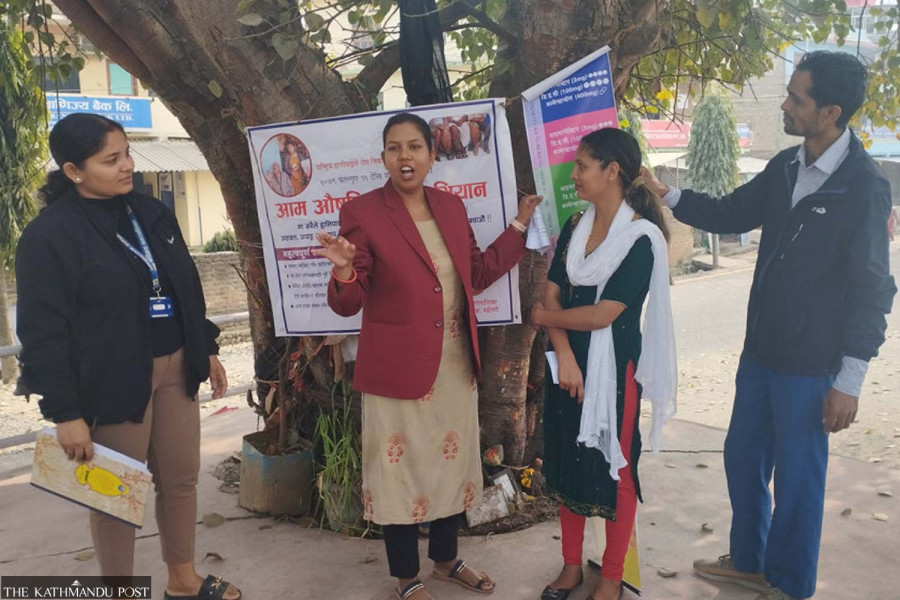Health
Anti-elephantiasis drive in 15 districts
The campaign against elephantiasis or lymphatic filariasis will continue over the next two weeks.
Post Report
Health authorities in 15 districts endemic to lymphatic filariasis or elephantiasis embarked on a mass drug administration drive on Thursday.
Under the two-week-long campaign, healthy people above two years old will be administered with diethylcarbamazine, albendazole and Ivermectin, officials said.
“Local authorities will continue the mass drug administration for next two weeks,” said Dr Gokarna Dahal, chief of the Vector Control Section at the Epidemiology and Disease Control Division. “Health workers as well as female community health volunteers will also reach out to every household to make sure that no one is deprived of antiparasitic drugs.”
Lymphatic filariasis is a mosquito-borne parasitic disease caused by filarial worms transmitted by different species of mosquitoes, including Culex, Anopheles, and Aedes.
It is the second major infectious disease after leprosy that causes permanent and long-term disability in Nepal.
Doctors say the disease may be acquired during childhood and its visible manifestation may occur only later in life. The disease can lead to temporary or permanent disability, pain, and social stigma.
The World Health Organisation has identified the disease as a major public health problem, with an increasing prevalence worldwide. Nepal is one of the 73 countries in the world where lymphatic filariasis is endemic.
Of the 15 districts, authorities resumed drug administration in four districts of Madhesh Province —Rautahat, Sarlahi, Mahottari, and in Dhanusha, where six rounds of mass drug administration programmes were held in the past, but later stopped. Officials said that those districts failed in the third round of transmission assessment survey, which is needed to declare elimination status of the disease.
“Those districts passed in two rounds of transmission assessment survey but failed in the third one,” said Dahal. “So, we have started administration of the antiparasitic drug again in those districts. Ivermectin has been included in the drug list of the mass drug administration campaign.”
A school-based random study was carried out in children between six and seven years of some wards of the said districts and antigenemia prevalence was examined.
Health authorities have launched the programme for the first time in Rasuwa (a mountainous district), after a prevalence survey showed presence of the disease in the population.
Other districts where the programme of mass drug administration has been launched are Jhapa, Morang, Bara, Lamjung, Parbat, Baglung, Kapilvastu, Banke, Dang and Kailali.
The government started a mass drug administration programme to eliminate lymphatic filariasis in 2003. Under the programme, healthy persons above two years of age in 63 districts were given diethylcarbamazine and albendazole.
The disease has been eliminated from 48 districts and assessment surveys of some districts are being carried out, officials said. In some districts, the programme has continued for the last 14 years.
Of late, the authorities have started using Ivermectin, the antiparasitic drug to control lymphatic filariasis, after all their previous efforts failed to control the prevalence of the disease. The medicine was also used in the Covid-19 treatment in many countries, including Nepal.
The government had committed to eliminating lymphatic filariasis as a public health problem by 2020. But the target could not be achieved due to low coverage of the programme in some districts.
The Ministry of Health and Population had extended the deadline to eliminate lymphatic filariasis to 2028. However, it further got postponed to 2030.




 9.25°C Kathmandu
9.25°C Kathmandu














